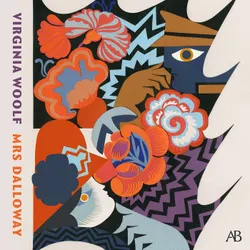Virginia Woolf's "Freshwater" is a pioneering one-act play that intricately explores themes of gender, identity, and the fluidity of artistic creation. Composed in 1935, the play is a semi-autobiographical reflection on Woolf's connection to the influential Bloomsbury Group, combining elements of humor with a poignant critique of societal constraints on women's creativity. The work exemplifies Woolf's distinctive literary style, characterized by experimental prose and psychological depth, effectively blurring the lines between reality and theatricality as it interrogates the role of the artist in a patriarchal society. Woolf, born into a prominent intellectual family, experienced firsthand the limitations placed on women in her time, which profoundly influenced her literary output. The encouragement from her literary circle, alongside her own experiences, inspired Woolf to create complex female characters that challenge traditional narratives. "Freshwater" serves as both homage and critique of notable figures and artistic conventions, demonstrating her belief in the necessity of female voices and perspectives in the literary canon. I wholeheartedly recommend "Freshwater" to those interested in feminist literature, as well as anyone invested in the exploration of identity and creativity. Woolf's wit and insight make this play not only a remarkable artistic endeavor but also a thought-provoking examination of the societal forces that shape artistic expression.
FRESHWATER : A Comedy by Virginia Woolf (The 1923 & 1935 Editions)
Starten Sie noch heute mit diesem Buch für € 0
- Hol dir während der Testphase vollen Zugriff auf alle Bücher in der App
- Keine Verpflichtungen, jederzeit kündbar
Autor*in:
Sprache:
Englisch
Format:
Ein Zimmer für sich allein
Virginia Woolf
audiobookbookMonday or Tuesday (Unabridged)
Virginia Woolf
audiobookEin Zimmer mit Balkon
Virginia Woolf
bookStreet Haunting: A London Adventure
Virginia Woolf
audiobookVom Kranksein
Virginia Woolf
bookRouva Dalloway
Virginia Woolf
audiobookMrs Dalloway
Virginia Woolf
audiobookbookSolid Objects :
Virginia Woolf
audiobookbookOrlando. A Biography.
Virginia Woolf
audiobookThe Common Reader: First Series
Virginia Woolf
audiobookbookThree Guineas
Virginia Woolf
audiobookbookThe Common Reader: Second Series
Virginia Woolf
audiobook












